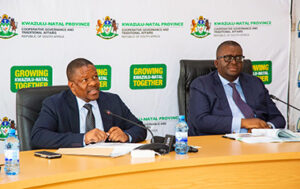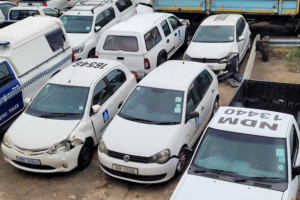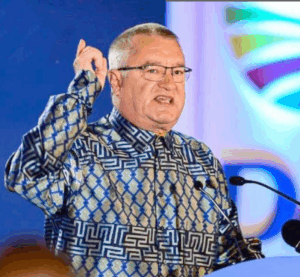Note to Editors: Please note Dr Keeka sound bite in English
A series of written parliamentary replies (view here) – to questions posed by the DA in the KwaZulu-Natal (KZN) Legislature – have demonstrated the full extent of the medical specialist crisis in KZN’s busiest government hospitals, which is directly impacting our province’s residents.
The replies, from KZN Health MEC, Nomagugu Simelane, are in many cases explosive and reveal not only massive specialist shortages but also waiting period of months in some cases for many patients.
The replies reveal that;
• Opthalmologists: The backlog of patients waiting to see an ophthalmologist is a staggering 9 406. This while there are just 18 opthalmologists at nine provincial hospitals. An additional 15 are required, with the DoH having approved 12. A total of nine registrars is currently undergoing training, with five due to exit at the end of the year and no new registrars to be admitted this year
• Cardiologists: KZN has only four cardiologists – based at Inkosi Albert Luthuli Central Hospital (IALCH), Greys Hospital and Ngwelezana Hospital – and requires a minimum of seven. Of those only one is permanent at IALCH. While emergency cases are attended to, there is a waiting period of up to six months for appointments. No new registrars are to be admitted this year
• Oncologists: KZN has only 12 oncologists – based at IALCH, Greys, Ngwelezana and Queen Nandi Regional Hospital. Backlogs for first-time appointments at each facility range from six to 10 weeks. Six more oncologists are needed
• Urologists: KZN has six urologists – based at Victoria Mxenge, St Aidan’s, Greys, IALCH and Ngwelezana hospitals. An estimated 600 patients are on the waiting list, with appointment dates as far out as three months. The DA is also aware that at Greys, this may extend to a few years. An additional 13 urologists are required
• Orthopedic surgeons: KZN currently has 44 orthopedic surgeons, despite needing 69 and while only two registrars will exit their training at the end of 2025. Non-emergency patient waiting times are two to three weeks
• Ear Nose and Throat specialists (ENTs): KZN currently has 11 ENTs – across nine provincial hospitals – with 14 required. This while non-emergency patients wait for anything up to eight weeks for treatment and only one registrar will exit training at the end of this year
• Neurologists: KZN has nine permanent neurologists with a three-month waiting period for patients and only one registrar due to exit training at the end of the year and;
• Radiologists: KZN is short of nine radiologists.
These figures prove the seriousness of the problem. The facilities cited are KZN’s apex hospitals – some of the busiest in the country, serving millions of people. The reality is that the sustainability of quality healthcare in KZN is under serious threat.
The reasons are not hard to find. It is well understood that the private sector is more lucrative – the state can never match the income of private sector specialists. Then there are the poor working conditions and long hours in government hospitals. Yet another reason is inadequate planning and management by senior departmental officials tasked with ensuring that the DoH and its hospitals function optimally.
Other significant factors include retirement, resignations, end-of-contract, and most importantly, budgetary constraints which have contributed to the inability to fill posts from the aforementioned reasons as well as hampering new recruitment. An area of concern is employing unemployed level one doctors every year which prevents the employment of specialists.
The DA acknowledges that MEC Simelane has always been forthright in all engagements on this matter. She has played open cards about the shortages and – more importantly – about the impact on KZN’s citizens and we welcome her engagements aimed at finding solutions.
The DA proposes the following measures to alleviate this crisis;
• A specific line item at future KZN Health portfolio committee meetings in order to thrash this issue out. While it will come down to funding availability, there must be a thorough and painstaking line-by-line budget review in order to increase the number of registrars in critical areas. This must also include a thorough look at where money is being wasted
• That the MEC and her department should create a working relationship and open up and increase sessions within the various departments involving private sector specialists.
• That the MEC and her department are encouraged to engage with the many retired specialists who have had to exit the state sector, and are now in the private sector. The DA is aware that many are willing to offer sessions that will go a long way to reduce waiting times.
• That the MEC and DoH ensure interprovincial collaboration to train specialists and, where possible, to manage patients and;
• While it may be unpopular, that the MEC and the National Health Council consider requesting that newly-qualified specialists conduct a year of paid service to the province, on a regulated sessional basis.
The DA, as a solid partner within KZN’s Government of Provincial Unity (GPU) remains committed to a caring, capable and ethical state and will continue to engage with the MEC and her department in a bid to improve these critical services over time.








